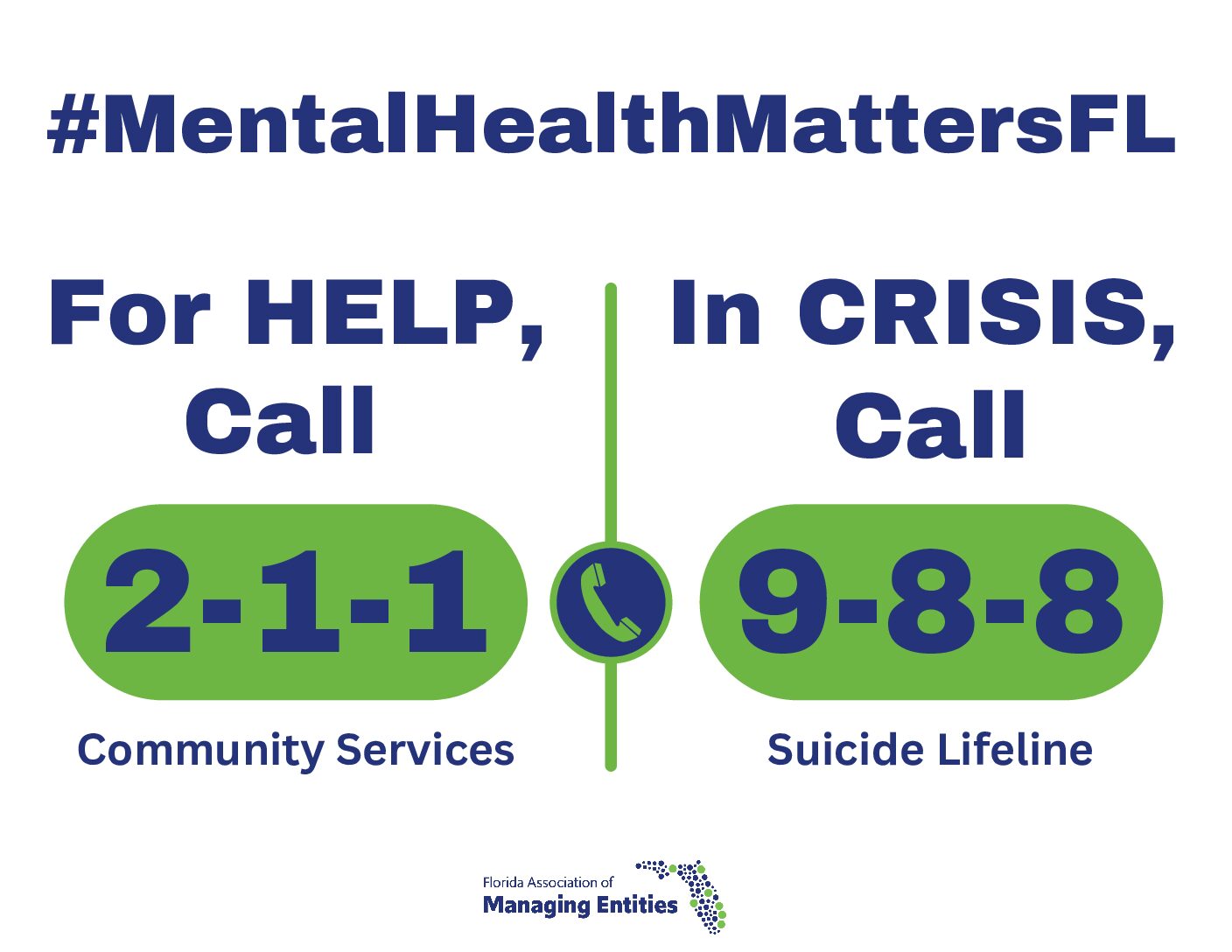Farm Share, Florida’s largest food bank, and Florida’s seven Managing Entities are partnering to provide information to Farm Share’s food recipients about how they can access needed behavioral health services. Numerous studies have made it clear that food insecurity is linked to increased rates of depression and anxiety.
Through this innovative partnership, the organizations will provide informational cards in the bags of food distributed by Farm Share. The cards will feature contacts for local behavioral health Managing Entities, enabling recipients to easily connect with mental health and substance use disorder providers – regardless of whether they have health insurance.
“Florida’s seven Managing Entities oversee our state’s indispensable behavioral health safety net system, and our goal is to make sure every Floridian who needs mental health or substance use disorder treatment knows what resources are available,” said Natalie Kelly, CEO of the Florida Association of Managing Entities. “We’re grateful to Farm Share for its collaboration on helping spread the word about these vital services.”
Added Farm Share CEO Stephen Shelley, “Farm Share is here to support all Floridians, and we recognize that many individuals who are facing food insecurity are also facing increased stress, anxiety, and other challenges. This partnership with Florida’s Managing Entities is a natural fit as we can help Floridians beyond their food insecurity and help connect them with resources that can get them back on their feet.”
The managing entities work with a network of over 300 behavioral health care providers who deliver services to over 300,000 of Florida’s most vulnerable residents, including children, expectant mothers, veterans, and the chronically homeless.
Providers help meet patients’ diverse needs with “wraparound services” that not only address mental health issues and substance abuse, but also assist with housing, transportation, and employment. Community boards administer, manage, and ensure accountability of state and federal funds for behavioral health services, keeping oversight and accountability closest to the people they serve.
About the Florida Association of Managing Entities
The Florida Association of Managing Entities (FAME) is the statewide organization representing Florida’s seven Managing Entities. FAME’s mission is to advance the behavioral health recovery of individuals and their families in the state of Florida. For more information, visit FLManagingEntities.com.
About Farm Share
With more than 3.9 million families suffering from food insecurity throughout Florida, Farm Share meets the everyday hunger needs of Floridians by working hand in hand with local farmers to recover and redistribute produce that would otherwise be thrown away due to aesthetic imperfections.
Farm Share currently serves all 67 counties in Florida. Since its inception, Farm Share has distributed more than 751 million pounds of food, with a value of more than $1.9 billion. In 2020 alone, Farm Share distributed more than 104 million pounds of food and served more than 86 million meals to Floridians. For more information about Farm Share, visit FarmShare.org.

